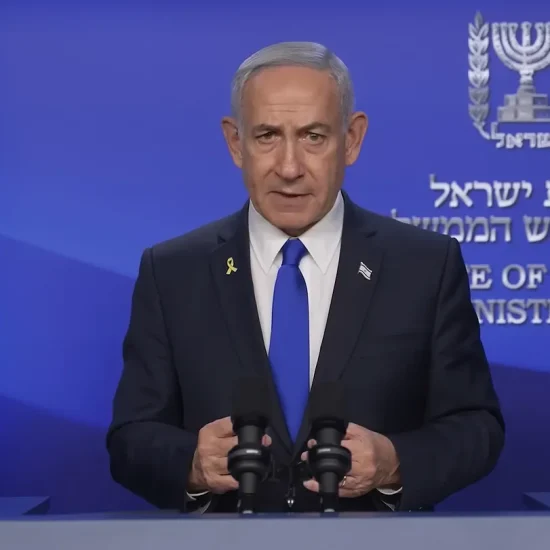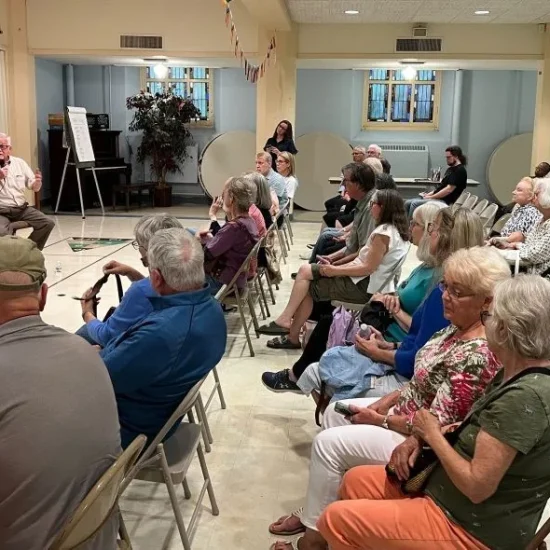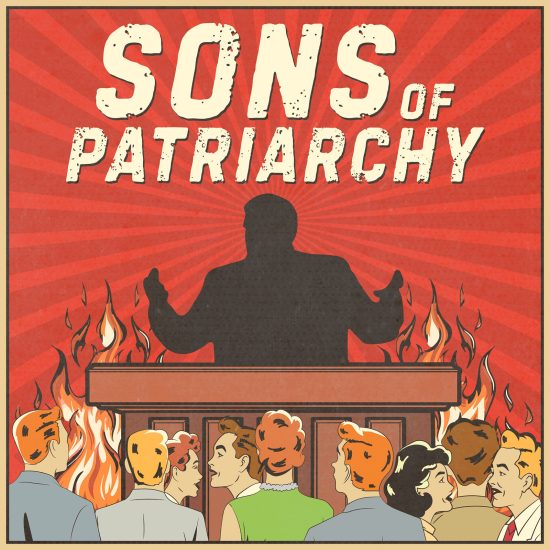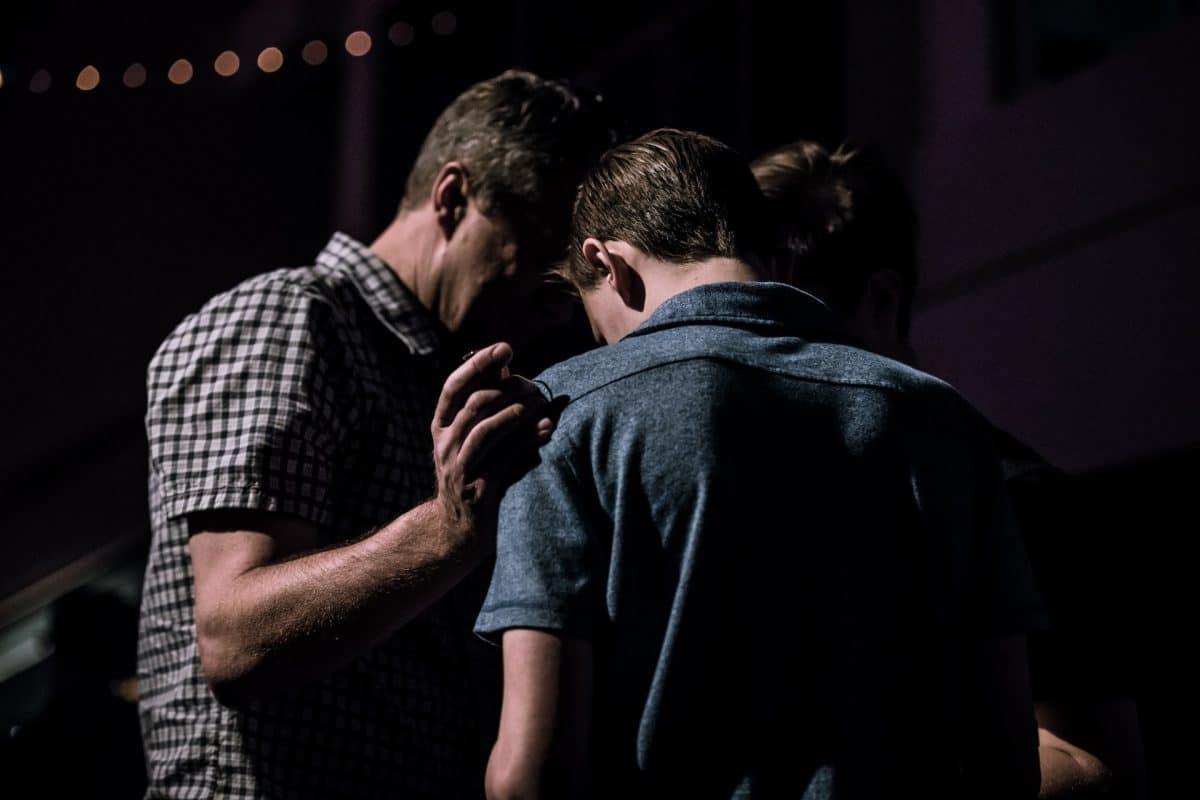
Iranian women’s struggle against oppressive laws and morality police has brought to the forefront of our consciousness striking images of women taking off and burning their headscarves, cutting their hair, and risking everything to proclaim their right to exist as full and free humans in their society. Women of amazing heart and courage are standing up to say, in the words of one Iranian activist documented in a recent New York Times article, no to oppression, only equal rights. The tragic death of Mahsa Amini in police custody sparked days of nationwide protests. Women, life, and freedom indeed.
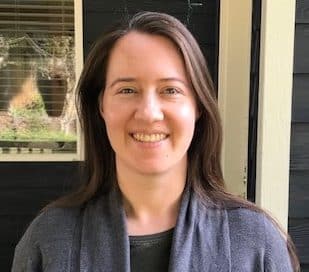
Liz Cooledge Jenkins
My social media feed has been full of support for these brave women. As it should be. I have also seen more than one person point out the hypocrisy of voicing support for Iranian women who protest oppressive patriarchy in their context while remaining strangely silent about oppressive patriarchy — and even hostile to those who speak up against it — in our own U.S. context, particularly in complementarian churches. These are interesting comparisons. They tend to spark debate about patriarchy and misogyny and what these ideas do and do not mean.
In these conversations, I find that some of my Christian female friends are quick to run to the defense of the good-hearted men in their lives who are surely not oppressive to women — even if these men are quite happy in complementarian churches that actively restrict women’s roles and opportunities and see no need for change. What I want from Christian men, though, is not exactly goodness, per se, so much as openness to change. I don’t expect men not to have patriarchal tendencies but I do want them to be actively learning and growing in the direction of equity and justice.
I wonder if our ideas of oppression are sometimes limited to forms that feel more extreme. Maybe the shapes misogyny takes in other places and other cultures are just unfamiliar enough to shock us into feeling something. Perhaps my (millennial) generation in the U.S. has, in the words of Women’s and Gender Studies and Africana Studies professor Brittney Cooper, “grown up with patriarchal expectations as barely detectable background noise.” The brand of patriarchy all around us feels normal. It is “so pervasive and familiar, it becomes invisible,” as author Sue Monk Kidd has written.
For my friends who want to defend the well-intentioned men around them, it’s not exactly that these women are not for women or that they aren’t for women’s rights. It’s more that they hear feminist critique and feel like the good-hearted men in their lives are being personally attacked. I’m glad these friends have spoken up because they have every right to. If, when I call out patriarchy, it feels like a personal attack on kind-spirited men, that is not my intent. I am not interested in passing judgment on whether a particular man is a good or bad person. Instead, I want to address patriarchal structures, systems, mindsets, theologies, practices, and attitudes. As author, activist, and professor bell hooks has written, “enlightened feminist activists [see] that men [are] not the problem, that the problem [is] patriarchy, sexism, and male domination.”
Feminists aim to rethink whole systems that harm women — and that harm everyone. Author and activist Mikki Kendall writes that dismantling and replacing patriarchal structures “will benefit everyone, making it easier to confront internalized homophobia and transphobia that is rooted in the devaluation of women and girls.” Women and girls — all women and girls, of every race and in every part of the world — deserve to be valued. We deserve to be heard. If we are going to figure out how to build a more equitable world together, women who feel that patriarchy is damaging, even devastating, need to be able to speak freely about the truth of our experience. We need men to do the inner work to be able to hear these truths without getting defensive. And we need fellow women who may have a different perspective to be able to hear these truths without getting defensive on behalf of the good-hearted men they know and love.
Calling out patriarchy and calling for systemic change does not necessarily mean that Christian men who embody patriarchal ways of being are anything but well-intentioned and good-hearted. It does mean that well-intentioned, good-hearted people can perpetuate unjust systems. Well-intentioned patriarchs are still patriarchs. This is simply another way of saying that all humans have blind spots. All humans grow up in a certain cultural milieu, and it’s hard to swim against the currents of normalized, polite-seeming forms of oppression.
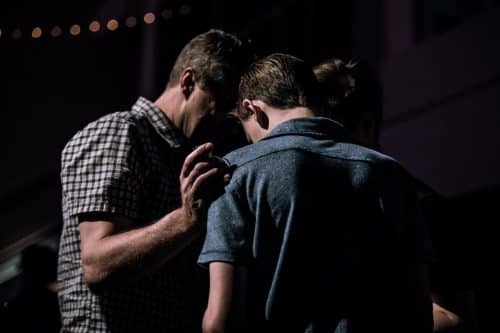
Jack Sharp / Unsplash
I’m not interested in labeling people as good or bad, but I am interested in all of us learning to work on our personal and societal issues. I’m interested in our individual and collective growth. This growth requires setting aside defensiveness. It requires letting go of the passionate plea that we and our loved ones are good people and admitting instead that we all have ways we need to rethink things, ways we might be causing harm, and opportunities to grow. The Christian life is a continual call to spiritual growth, an ongoing invitation into repentance — a word that, in its original New Testament Greek, simply means to change our minds. I think that’s beautiful. We all have things we’re wrong about. The goal is not to be right all the time but to be willing to be humble — to evolve, to listen, to grow.
It is powerful for me every time I hear a man acknowledge his tendency toward a patriarchal mindset and say sincerely that he’s working on it. South African Archbishop Desmond Tutu did this in his foreword to God Is Not a Christian: And Other Provocations: “reflecting on this collection of what I have said and written over the past forty years has… reminded me how sexist my language was when I was young.” I deeply admire Tutu’s courageous truth-telling and peacemaking work throughout his life. And yet even he had to learn over many years how to see and treat women as his equals.
The struggles of women in U.S. churches — and in the U.S. in general, especially in our post-Roe world—are surely different from the struggles of women in Iran, and yet both are real. Both are important. Both call attention to injustice in a way that cries out to be heard and understood by people in power—and by all men in a patriarchal world. I do not doubt the good intentions of many men who uphold patriarchy, sometimes without even being aware that they are doing so. But I do want better from them. I want better for women — and for men, and for people of all genders. I want a world of equality, justice, and love — the kind of real love that, as bell hooks writes, cannot exist where there is domination.
I support Iranian women who are rising up against their oppression. I support women in the U.S. who rise up against ours. Naming patriarchy is part of the process. Men — and the women who know and love them — who feel threatened by this can double down and shut down, or they can open their minds and hearts. They can embark on a journey of listening and learning. They can join in the struggle. I welcome men on this journey. And I hope for nothing less.
Liz Cooledge Jenkins is a writer, preacher, fire chaplain, and former college campus minister with an MDiv from Fuller Theological Seminary. Her work has appeared in Sojourners, Feminism and Religion, and Christians for Social Action, among other places, and she blogs regularly at lizcooledgejenkins.com. She lives in the Seattle area, where she enjoys swimming, hiking, attempting to grow vegetables, and drinking a lot of tea. You can find her on IG @lizcoolj and @postevangelicalprayers.




